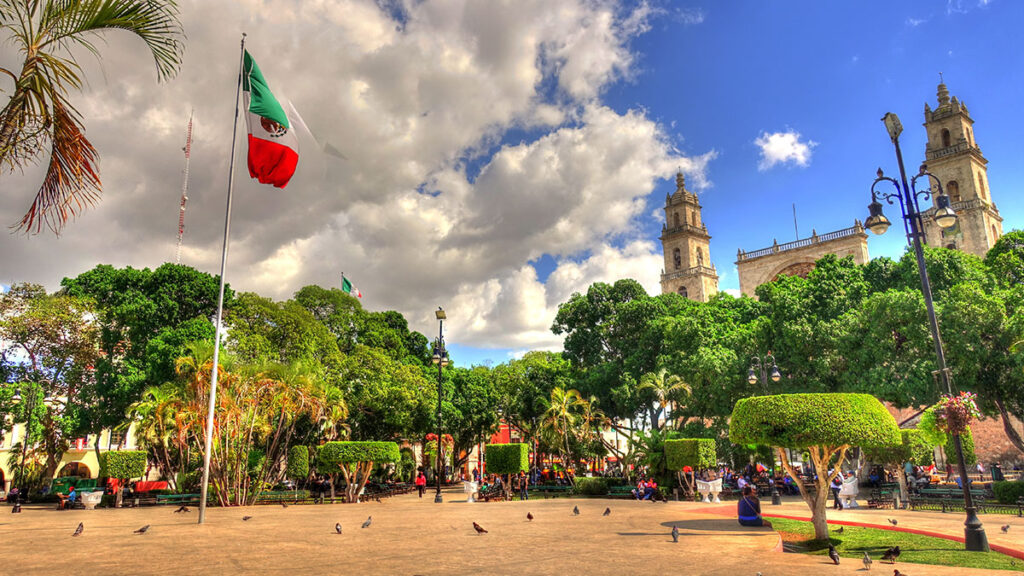Why LGBTQ+ Retirees are Flocking to Mérida
When I visited the town of Mérida in Mexico’s Yucatan Peninsula recently, I had already determined I was going to like it because of all the good things I had heard. I just didn’t realize how much I’d love it until I walked the streets of the old colonial city, tasted the delicious traditional food native to the city, and witnessed how warmly LGBTQ+ visitors are welcomed here. These are some of the reasons why there’s a large and growing community of LGBTQ+ expats in Mérida, and Triton and I are thinking of joining them.
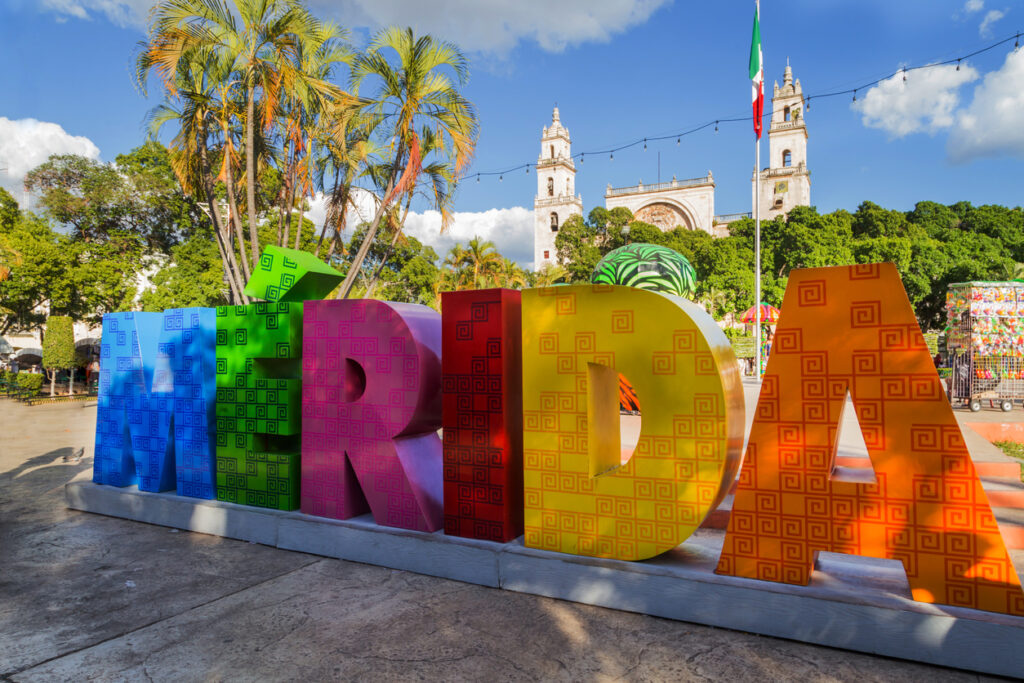
Mérida’s Small-Town Vibe and Proximity to Natural Beauty
Mérida is one of those special Mexican cities that successfully melds modern conveniences with deep history and reverence for its colorful Mayan past. The quaint cobblestone streets in the center of Old Town are lined with historic buildings constructed in the Spanish colonial style and often painted white or bright, primary colors.
The city of Mérida is located along the Gulf of Mexico east of Cancun, and I’ve already mentioned, it is very LGBTQ+ friendly. The city itself is nestled in the jungle about a 40-minute drive from the coast. Its size can be deceiving because it’s home to nearly 1 million people.
LGBTQ+ travelers visiting Mérida should know that the city resides in Mexico’s Yucatan state, home to the famous Mayan ruins such as Chichen Itza, a pre-Columbian city built by Maya people and it’s been a registered UNESCO World Heritage Site since 1988. And I’d be remiss if I didn’t mention the beautiful cenotes (natural pits or sinkholes) found throughout the Yucatan jungle nearby, where people can swim and explore the marine life in their mysterious waters.
With all this, one might think Mérida would be a hub for mega-resorts and tourist attractions. It’s quite the opposite. Tourists do visit here, but they usually stay in sweet boutique hotels located in converted haciendas and explore the city themselves or in small groups rather than giant tour bus brigades.
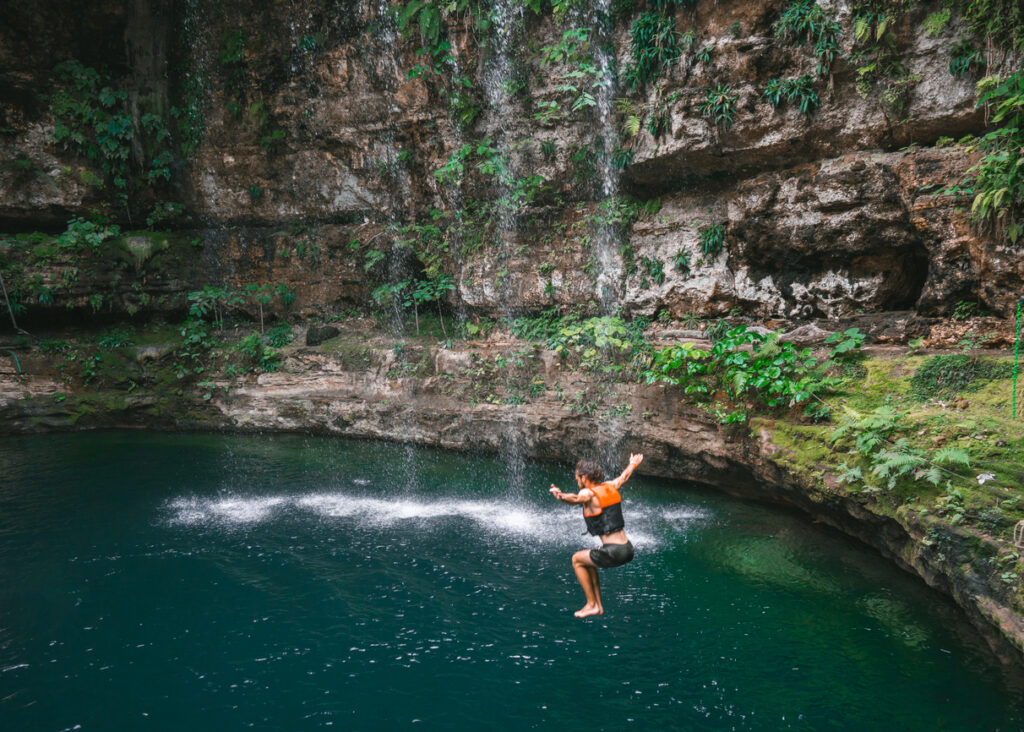
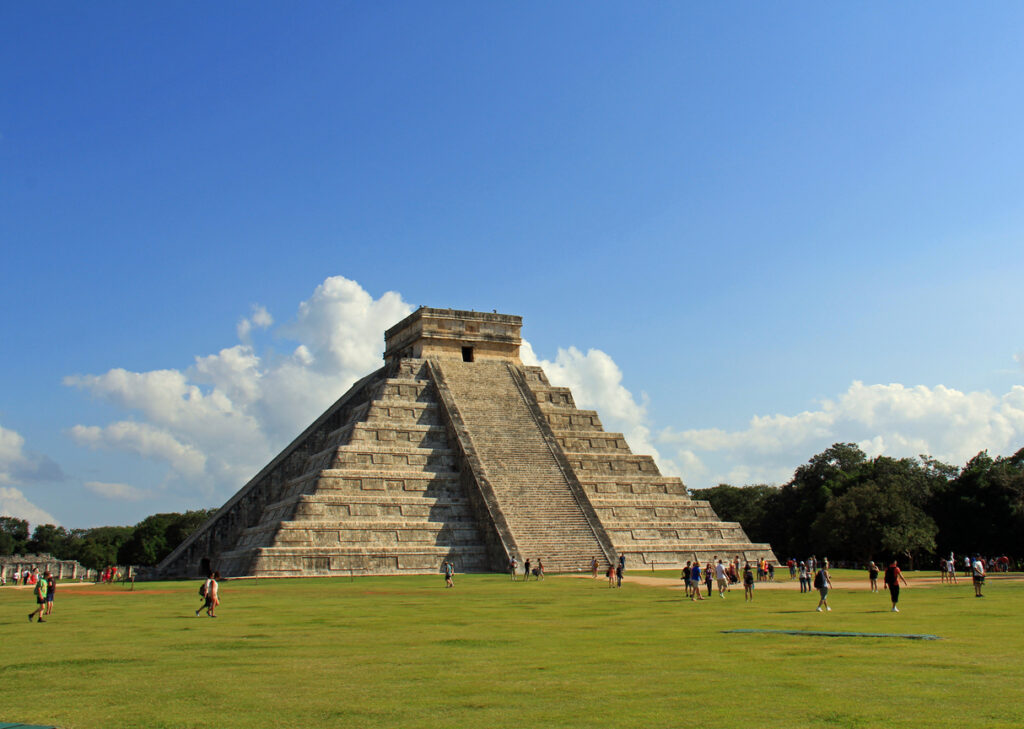
Combination of Mayan and Spanish Architecture
Once a Mayan stronghold, Mérida’s indigenous culture was replaced with convents and Christianity after Spanish conquistadors arrived in 1542. What exists now is a cultural melding of old and new – original traditional Mayan accents still holding strong in a uniquely modern, European-inspired structure.
It’s not surprising that Spanish Colonial architecture is a prominent part of the buildings – from palatial mansions to unassuming haciendas hidden behind shuttered windows and doors – that line the streets of the Centro Historico in downtown Mérida. Buildings in this area are positioned very close to the street, and they rarely offer interior views to curious pedestrians. But when those doors are open, the jewel-box interiors are revealed. Some with open courtyards, elaborate tile work, shady terraces, and swimming pools.
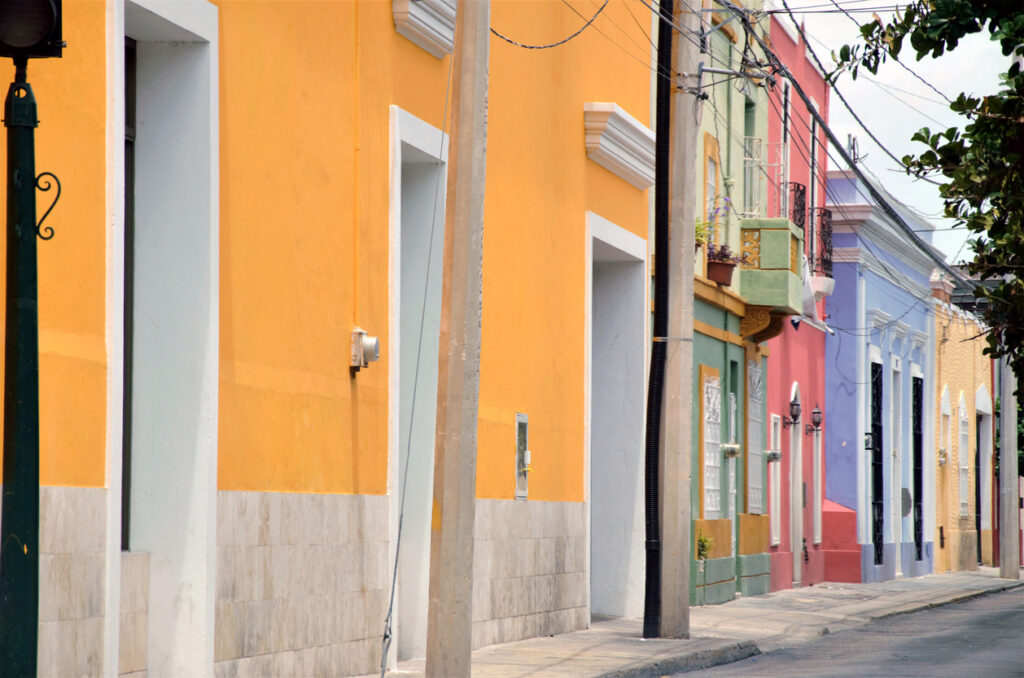
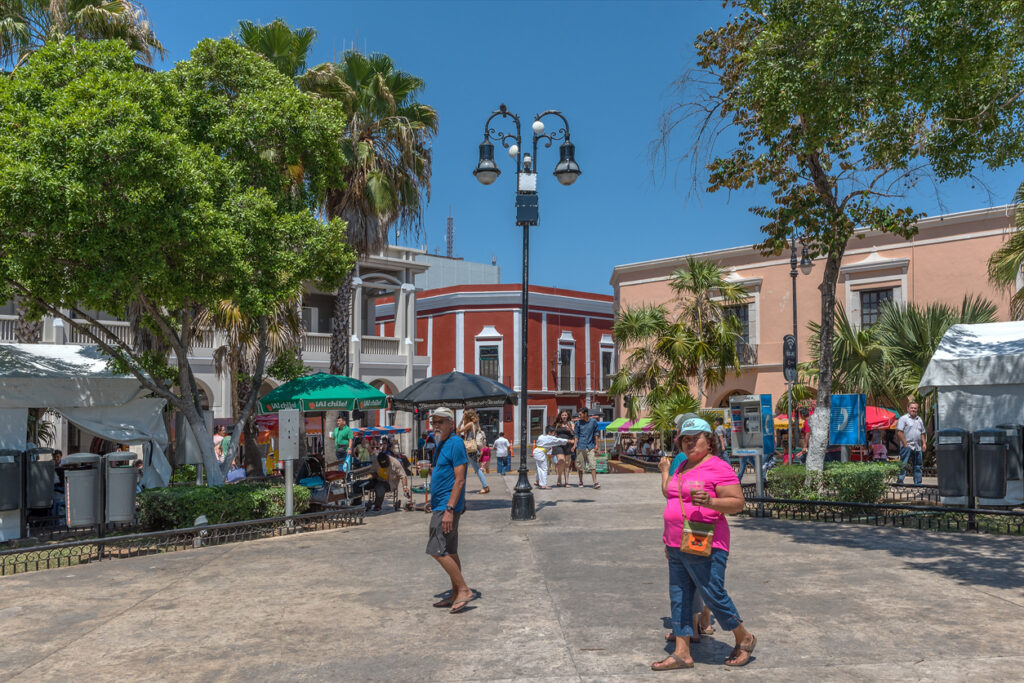
What Makes Mérida Attractive to LGBTQ+ Retirees?
According to Financial Times, American homebuyers are also attracted to the city for its low crime stats and because it’s safe for women. Police are visible on practically every street corner in the downtown areas, and locals are genuinely friendly and honest. Theories on the origin of why Mérida is so safe vary, but it’s not the only reason the people are flocking to the city. In addition to the low cost of living in comparison to living in a city of the same size in the US, the local economy is strong with nearly zero unemployment, which makes for happy residents.
And one major perk that makes some retirees happy about living here is its vibrant, existing community of queer ex-pats, and most importantly, the city’s LGBTQ+-friendly vibe.
“The city is alive,” said Steven Lindquist, an American ex-pat who heads an LGBTQ+ Facebook group for expats living in Mérida. “It has events, and activities, and there seem to be endless local activities monthly. The best part of the city is the people, the Yucatecans are warm, friendly and they have a serious live and let live attitude. There is never an issue with being gay in this city.”
In addition to its welcoming and inclusive spirit, Mérida typically has a different unique appeal to everyone, but here are a few more reasons why LGBTQ+ retirees around the world are interested in relocating to the city.
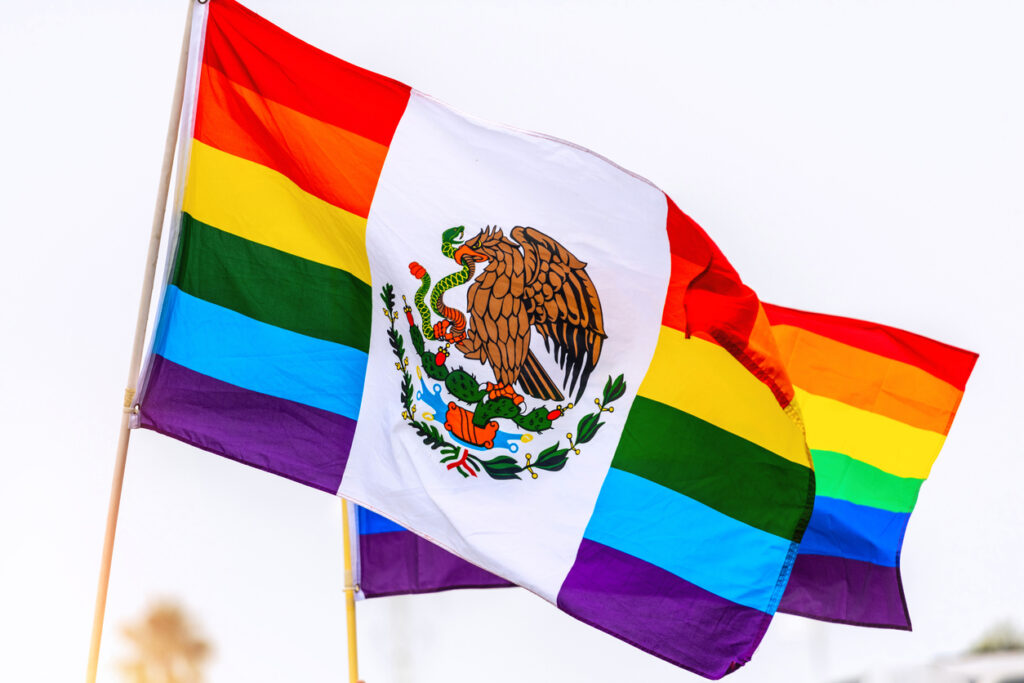
The LGBTQ+ Community in Merida
Mérida has a thriving LGBTQ scene, complete with a mid-June Pride Festival and parade with several days of scheduled events in the Zocalo. Throughout the year, residents and visitors keep the scene lively. LGBTQ+ individuals regardless of their gender or sexual orientation will feel at home here. Several restaurants, bars, and nightclubs are scattered throughout the old city and downtown area, despite the lack of a specific neighborhood to call our own. Life here is more integrated with a decidedly tolerant attitude.
“We looked at a number of cities in the US and few in other countries, but after visiting the Yucatan Peninsula over the years, Merida just felt right,” said Lindquist, who lives in Mérida with his husband Mark Stevens.
According to Lindquist and Stevens, a large part of gay life exists in friend groups, particularly among the communities of expats and retirees. There are thousands of expats living throughout the Yucatan, and there is a strong camaraderie regardless of how you identify.
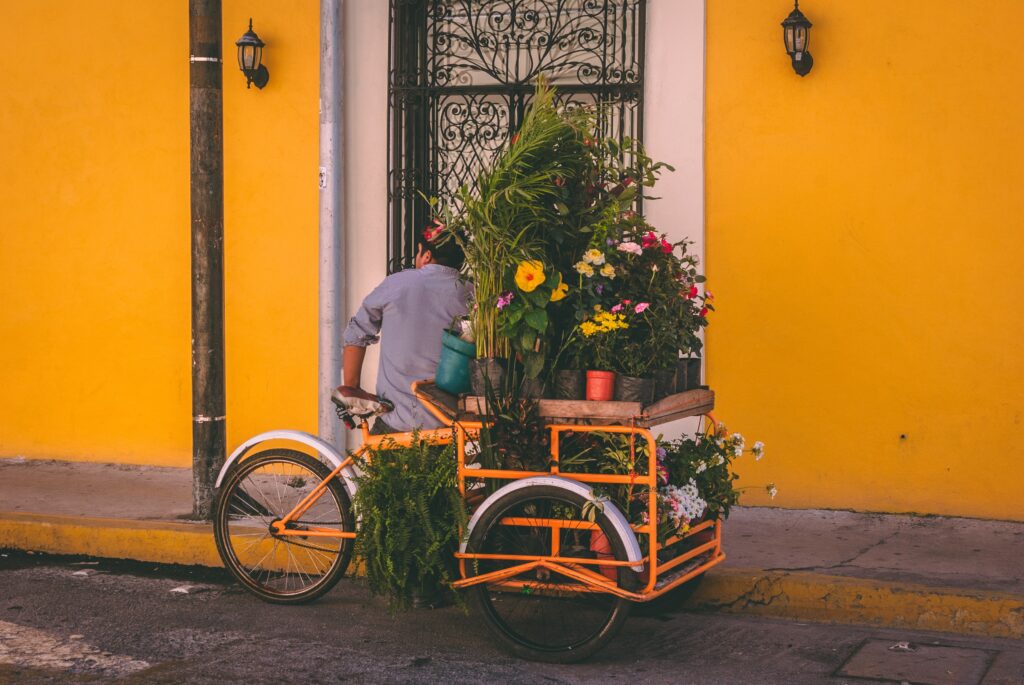
Tropical Weather
With an average temperature hovering around a balmy 80°F, Mérida delivers easy, sunny days punctuated by dips in a pool and siestas under gentle breezes. The hot and rainy season from June through October can be intense for some people, but I love the sizzle.
Low Cost of Living
Like any city in Mexico, Mérida offers a cost of living far below the comparable living situation in the United States. The average monthly cost of living for a couple living in Mérida is around $1,500-$1,700 per month.
Large English-Speaking Population
Not to dismiss learning Spanish to navigate life here, but there are a large number of locals that also speak English.
High-Quality Healthcare
Medical care is world-class with English-speaking doctors and modern hospitals. National healthcare programs make visits and treatments quite affordable, and nearly all medications can be easily obtained at the pharmacy at a fraction of the cost we pay in the US.
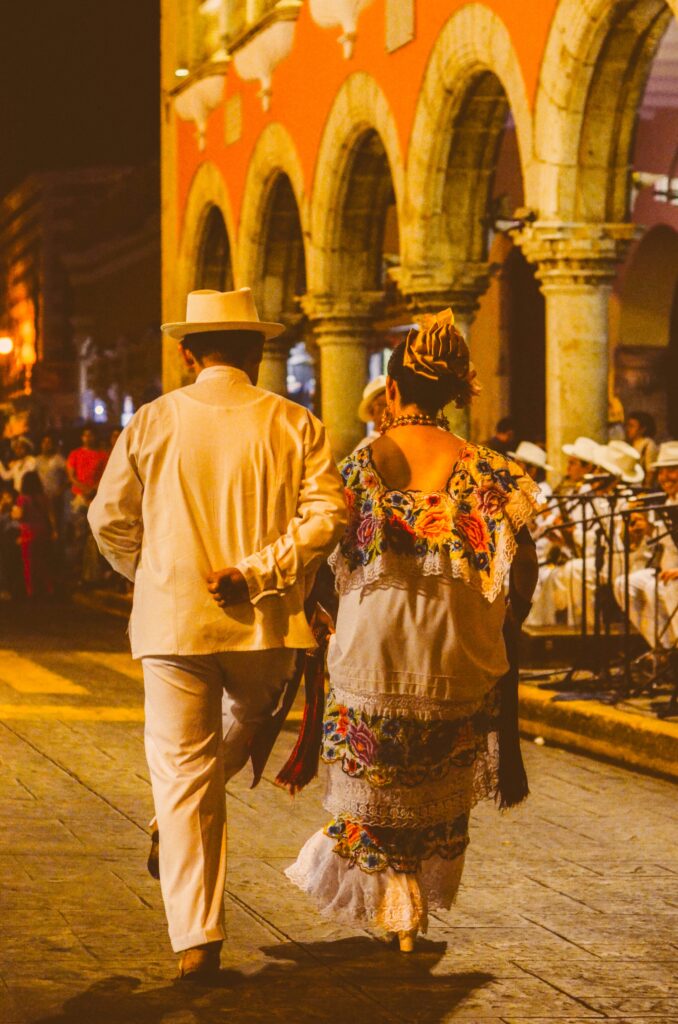
Modern Conveniences
Wi-Fi is strong throughout the city, and there is easy access to well-made goods from around the world. Clothing, electronics, furnishings, sporting equipment, and other essentials can be easily obtained from local open-air street markets, shops, malls, and big-box retailers.
Modern International Airport
Mérida has a modern airport – the Mérida International Airport – within convenient distance to the city center, just 8 miles away. Flights arrive from the US, Canada, other cities in Mexico, and a host of Latin and South American destinations.
Culture
Mérida has more than 10 museums dedicated to art and humanities and seven institutions of higher learning. It attracts a strong visual and performing arts community. The city also has six active theaters – like Teatro Jose Peon Contreras, Teatro Armando Manzanero, and Teatro Daniel Ayala – that feature live theater, dance, and music including the Yucatan Symphony Orchestra, jazz, rock, and traditional genres.
Top-Notch Cuisine
The culinary culture in Mérida is strongly based on age-old Yucatan traditions that have become world-renown. The local specialty is cochinita pibil – pork marinated in orange juice and cooked wrapped in banana leaves.
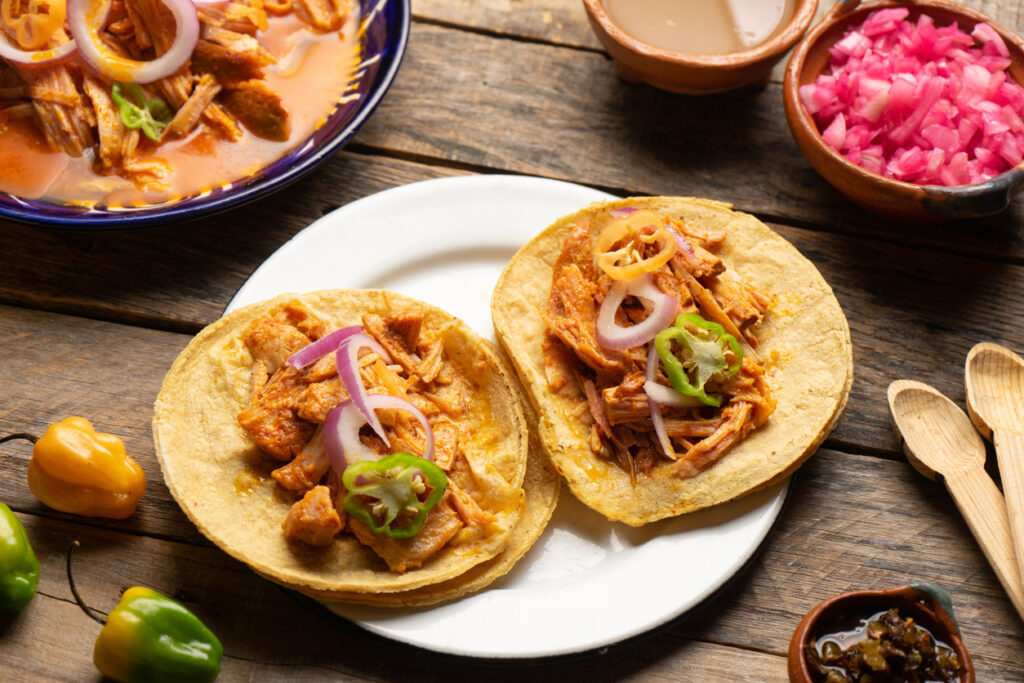
Plan a Visit to Mérida
Here are a few recommendations if you’re curious and want to check out Mérida before you make a big life-changing decision to move there.
Where to Stay
Casa Lecanda is a small boutique hotel with just eight rooms, but this hotel is a delight for the senses. Meticulous attention to detail is a hallmark here and is present in its cuisine, bar, design, and embellishments. Other LGBTQ+-friendly hotels include lesbian-owned Casa Ana and the luxurious and gay-friendly Mansion Hotel.
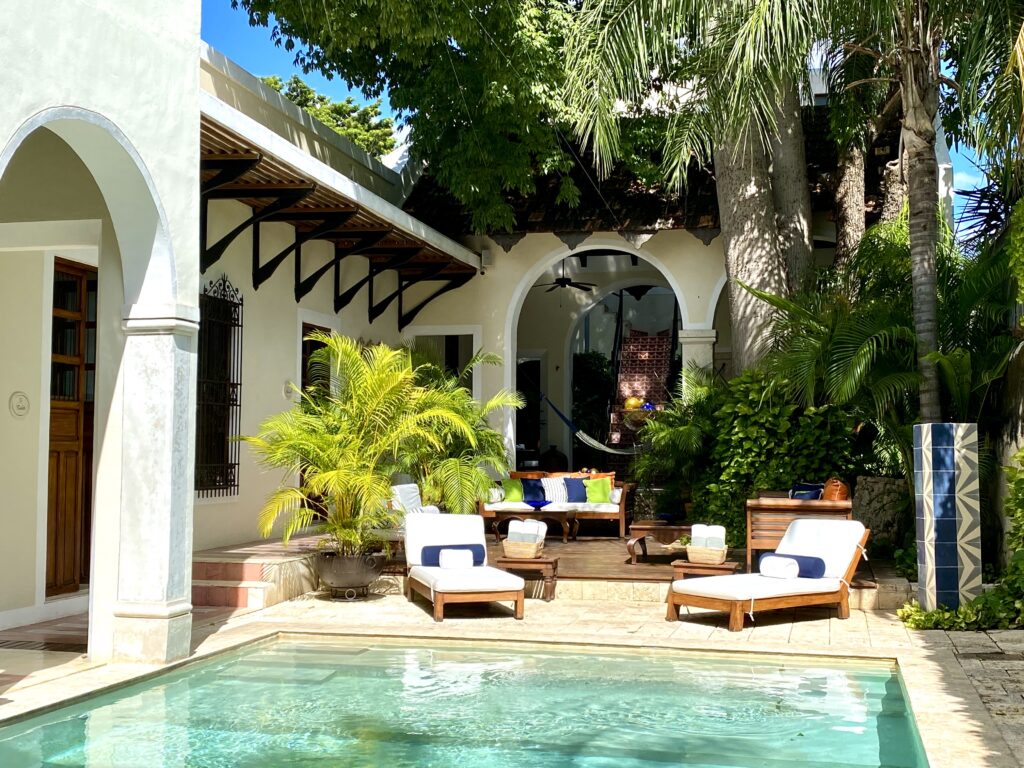
Take a Tour
Mérida Gay Tours organizes trips and adventures around the city and Yucatan Peninsula. Private and group tours are led by LGBTQ+ guides who can take visitors to the beaches, ruins, on snorkel trips, cenotes, and other nearby attractions.
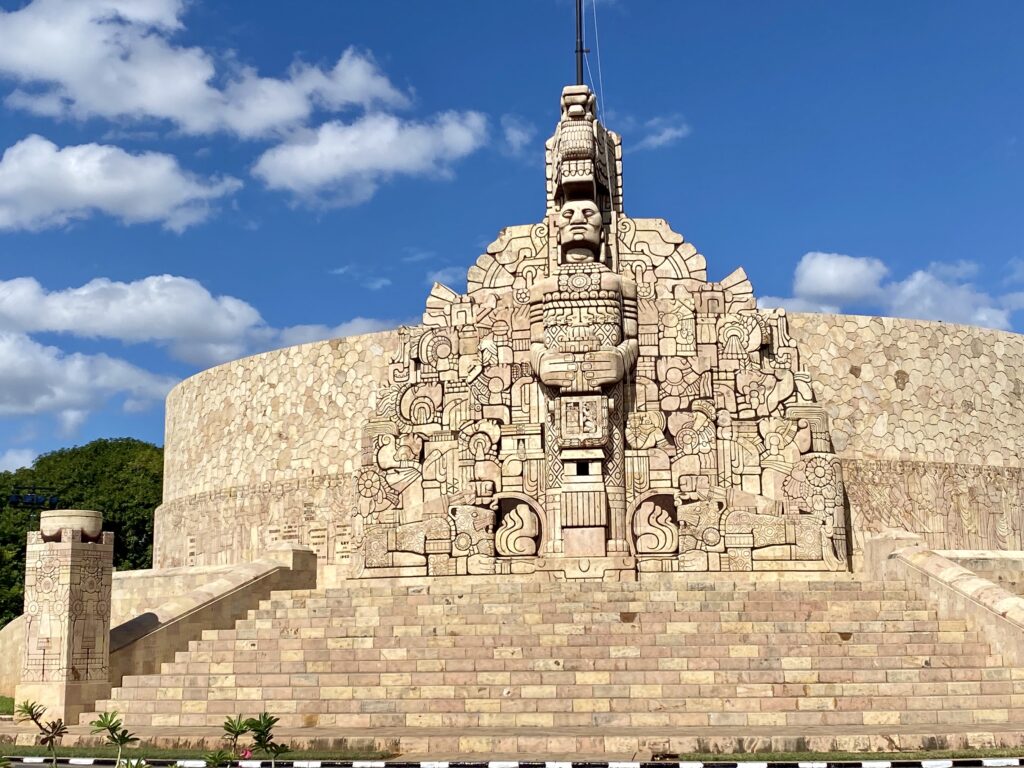
Where to Eat
Beyond the local specialties, you should consider visiting Ku’uk, where I dined a combination of dishes, including a delicious suckling pig prepared with seasonal mamme, sapodilla & chocolate persimmon as well as the grilled octopus – it was out of this world! Less fussy but every bit as delicious was Apoala, located in a busy square called Parque de Santa Lucia in the Centro Historico. The gay-friendly Casa Chica is a cool hangout for cocktails, and snacks served inside a former colonial mansion.
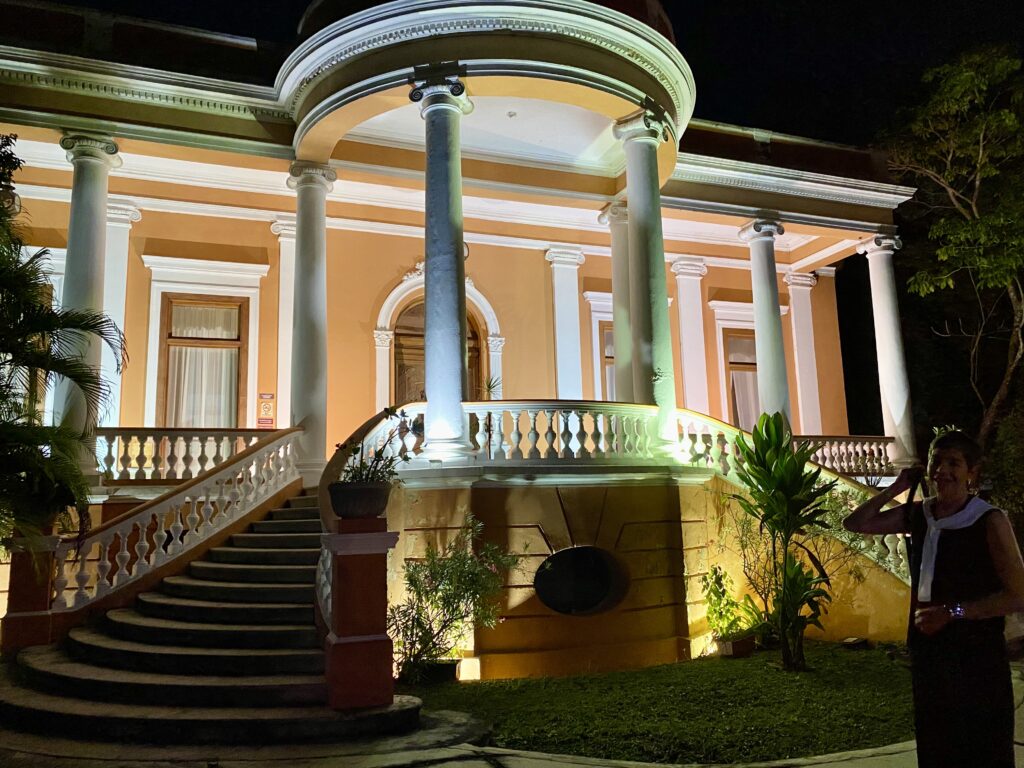
Nightlife
If you’re looking for fun bars and clubs, you should check out Mandala by Blúe for dancing, go-go boys, DJs, and an outdoor terrace. Papis is right next door, a longtime institution in Mérida with disco, strippers, drag queens, and karaoke. The women-owned Cada Dia Bar Café is a gathering spot that features live music and a bohemian vibe.
Looking for more inspiration to travel to Mexico? Take a look at ways LGBTQ+ adventurous travelers can experience Puerto Vallarta, Mexico.

